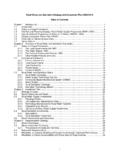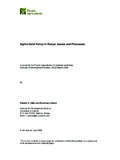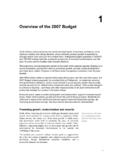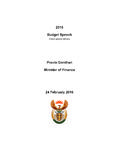Transcription of Investment for Sustainable Development …
1 Investment for Sustainable Development Private Investment is a powerful Development enabler: delivered in the right way it can create jobs, build skills, spur innovation, provide essential infrastructure and services, boost economies and strengthen standards in public and corporate governance. Investment , both foreign and domestic, needs to be scaled up significantly in the coming years to contribute to the post-2015 agenda. More Investment is not enough, however. It must also be good quality. Even though private finance accounts for the lion s share of capital inflows to developing countries, its contribution to Development is still to fully materialise. The Sustainable Development Goals (SDGs) explicitly call for quality Investment to support this transformation. Tapping the Sustainable Development potential of Investment means increasing the capacity of the local economy and the public sector, reforming framework conditions to make countries attractive Investment destinations, and promoting responsible business conduct along the length of global supply chains.
2 The OECD plays an important role in encouraging reform to improve the enabling environment for Investment and promoting international good practice and responsible business conduct in home and host countries. It does so through a wealth of policy tools, reviews and peer dialogue mechanisms, especially the Policy Framework for Investment and the OECD Guidelines for Multinational Enterprises. OECD AND POST-2015 REFLECTIONS Investment for Sustainable developmentElement 11, PAPER 3 How to finance Development is one of the most pressing questions in the reflections on the Sustainable Development Goals for the post-2015 Development agenda. Key to answering this is finding ways to involve the private sector in delivering Development . Private finance already accounts for the lion s share of capital inflows to developing countries.
3 Foreign direct Investment (FDI) makes up around 60% of inflows into developing countries, dwarfing public inflows. Public inflows, including official Development assistance (ODA), net of debt repayment, account for a mere 1% of all capital inflows to African countries (World Bank Group, 2013b), while ODA represented only about 3% of African gross domestic product in This paper outlines how private Investment can become a significant part of a strategy for financing the Sustainable Development goals, and the role of the OECD in promoting the framework conditions for quality Investment to support national and regional Development objectives. Private Investment in developing countries has steadily increased over the past 20 years (Figure 1). In 2012, developing economies attracted over 50% of global flows (up from less than 20% in 1990), exceeding FDI inflows to developed countries for the first time.
4 They maintained their lead in 2013 too. Developing and transition economies now make up half of the world s top 20 recipients of FDI inflows. FDI to developing countries has been less affected by the volatility of global Investment levels in the past years, with growing South-South Investment (OECD, 2014a). Investment FOR Sustainable DEVELOPMENT2 Responsible Investment for inclusive growth and Sustainable developmentPrivate Investment can be an essential enabler of economic and human Development : under the right conditions it creates jobs and boosts the activity of local firms, suppliers and distributors by creating demand and a market for their products and services. It can improve access to and the quality of infrastructure and services critical for the Development of entrepreneurship and small businesses, such as banking and most Investment is undertaken by domestic firms, international Investment can bring particular benefits.
5 It can encourage innovation and spur productivity growth by bringing in or generating new information and technologies such as through knowledge-intensive activities like research and Development . It can help to spread new technologies and expertise, for example through the creation of business linkages and by providing improved access to international markets and global value chains. If adequately framed, Investment can improve the human resource base by fuelling the Development of skills in the host economy through educational and training programmes to meet market needs. Companies are also increasingly driving the efforts to improve the sustainability of their operations and contribute to Sustainable Development . Responsible investors that respect international standards of responsible business conduct can help to identify and respond to risks of adverse impacts associated with particular products, regions, sectors or industries.
6 There are many practical examples of the power of Investment to accelerate economic Development . In Southeast Asia private Investment and trade have driven Development , and the region s record in export performance speaks for itself. In some cases, however, it has been less able to translate this success into lasting and inclusive Development , partly due to a lack of appropriate policy frameworks to support Sustainable Development through 1: Foreign direct Investment in developing economies, 1990-2013 Source: OECD statistics0%10%20%30%40%50%60%0500100015 0020002500199019911992199319941995199619 9719981999200020012002200320042005200620 07200820092010201120122013US$ billionsFlows into developingeconomiesTotal global flowsDeveloping economy share (%)of total global flows (right hand axis)3 Despite the general recognition of the Development potential of Investment (Box 1), it remains unrealised in many parts of the world.
7 And where there have been significant increases in FDI to developing countries in past decades, these have not always met the needs of Sustainable Development . Greater efforts are needed to spur Sustainable Development through investmentIn many low-income countries, Investment rates are inadequate; existing Investment is not always designed to bring Sustainable Development gains in addition to the financial returns investors are looking for. Further, all regions and sectors do not benefit equally from Investment . Asia received 30% of all FDI to developing countries in 2012, while Latin America hosted just under 20% and Africa only 5% (OECD, 2014a). Where Investment does occur, the local economy does not always possess the capacity and policy tools to reap the potential benefits of private Investment . Low-income countries may not have the mechanisms for integrated, whole-of-government approaches required to reap such benefits.
8 Productivity gains are often low in the economies that would most benefit from Investment , and incentives insufficient to encourage innovation. At the same time, export-oriented foreign investors may create virtual foreign enclaves of activity, bringing in foreign suppliers, employees and materials. This leaves few benefits for the host economy, as linkages with local counterparts tend to be weak and limited. Moreover, the informal economy is sizeable in most developing countries,2 meaning that a significant part of economic activity is left outside the protection, regulatory frameworks and taxation set by the government. It also makes it difficult for those in the informal economy to benefit from support programmes such as agro and micro-financing Investment for Development and economic growthInfrastructure is a crucial enabler of Development and economic growth, for example through the provision of safe drinking water and sanitation, the Development of agriculture and rural livelihoods and access to basic social services such as healthcare and education.
9 Infrastructure also facilitates the flow of goods, services, people and market information, and lowers costs for business. Yet infrastructure suffers from chronic underinvestment, especially in low-income countries. According to the World Bank, two-thirds of people in sub-Saharan Africa and one-fifth of people in South Asia lack access to electricity, less than 20% of roads in sub-Saharan Africa are paved, and only 30% of people in sub-Saharan Africa and 40% in South Asia have access to improved sanitation 1. Investment as a key part of the international Development framework The Monterrey Consensus, the outcome of the first International Conference on Financing for Development in 2002, acknowledged the role of private Investment in supporting Development (UN, 2003). This role has been reiterated throughout the discussion on how to finance Development goals, including in the Doha Declaration, the outcome document of the 2008 Doha Conference on Financing for Development (UN, 2009), and the Report of the Intergovernmental Committee of Experts on Sustainable Development Financing (ICESDF, 2014), in preparation for the third International Conference on Financing for Development , to be held in Addis Ababa in July 2015.
10 This emphasises the need for sound policy frameworks to encourage private Investment in actions that support poverty Sustainable Development Goals are designed to be universal and integrate the social, environmental and economic pillars of Development to transform the functioning of societies and economies for a more Sustainable future. They explicitly call for quality Investment to support this transformation, as detailed in the Open Working Group Proposal for Sustainable Development Goals (Open Working Group, 2014). Investment FOR Sustainable DEVELOPMENT4On the one hand, private Investment in infrastructure can improve productivity and create an attractive business and Investment climate (OECD, 2015a). But on the other hand, companies regularly cite problems with electricity and transportation infrastructure as some of the key hindrances to investing and doing business in developing countries (World Bank Group, 2013a).
















